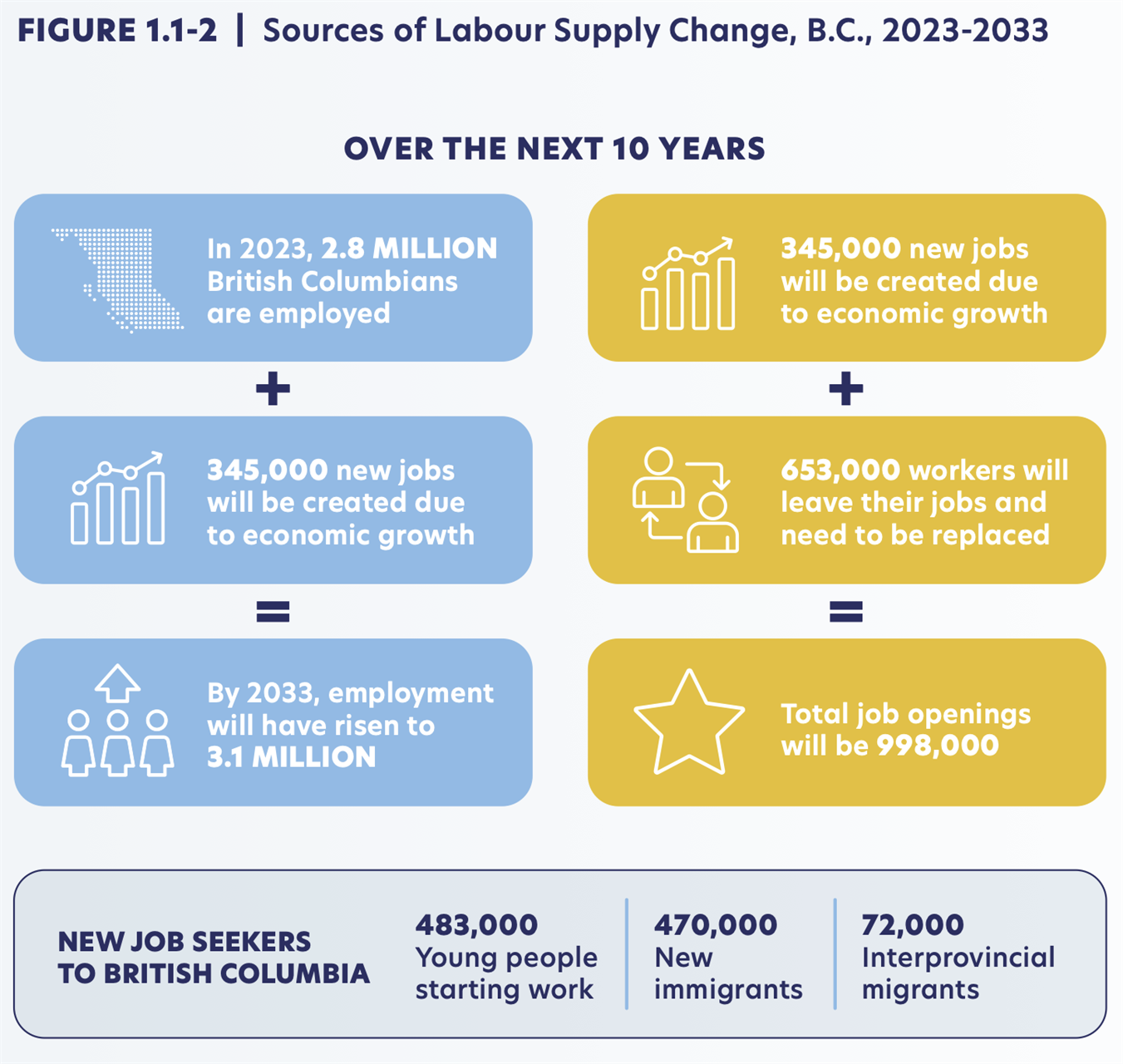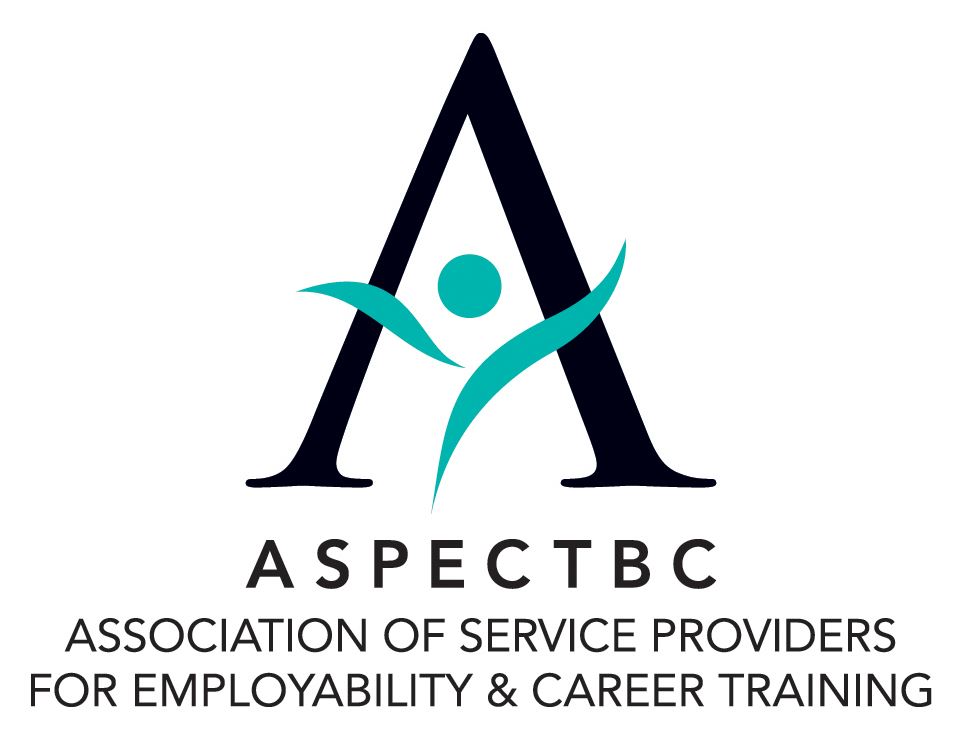It seems like a convergence of labour market information has landed in our laps over the past few weeks, giving us some idea of what is ahead for the sector.
Last Monday, I attended the BC Labour Market Report's Year in Review, presented by Christian St. Cyr. In this day-long webinar, Christian breaks down all the latest labour market information, government announcements, legislation, and labour market research from the past year into an informative and entertaining day. I'm always impressed with his ability to parse the various data and provide a compelling perspective.
Late last week, the government of BC released its BC Labour Market Outlook: 2023 Edition, which I think is always a fantastic feat by the public service in the Ministry of Post-Secondary Education and Future Skills. Although slightly down from last year's projections, we can expect 998,000 job openings in the next ten years. Below is a graphic from page 10 of the report that shows how the numbers make sense. I would encourage you to examine the report closely, but know that you are already doing that. Kudos to our government friends for another outstanding publication.

Something else announced last week that you might have missed is the Provincial Data Plan: Better Data, Better BC. In it, the goal is to map "an all-of-government approach…to advance equity, support reconciliation, increase evidence-based decision making, deliver the modern services people need, and strengthen data competency and governance" (quoted from the website). Those in our sector know first-hand some of the gaps that emerge in data collection and how quickly those gaps can be a challenge when delivering services to those within their communities. I am hopeful that with the new data plan, the government will look closer at what data is needed to make decisions rather than take a shot-gun approach to collection.
This reminded me of the Prime project through the Canadian Career Development Foundation, in which they determined, in partnership with career development professionals, what outcomes in career development services are most important to measure. The project report from March 2021 ends with a section called "The Final Tale of Transformation: The Art of What's Possible," where they conclude that the Canadian public employment ecosystem faces systemic challenges, including inadequate assessment of clients' diverse strengths and needs, limited and insufficient metrics for reporting, a lack of comprehensive data for strategic planning among others.
All the information gathered helps us better understand workforce development's present and future and how employment service providers can support their communities. As AI becomes more prevalent and the labour market's supply and demand shift, service providers are perfectly positioned to address gaps and showcase potential opportunities. I believe that ASPECT members are capable of adjusting to the changing needs of their communities. You are in a great position to recognize emerging trends and share your knowledge with those who can benefit from it.
Janet Morris-Reade, CEO
ASPECT BC
